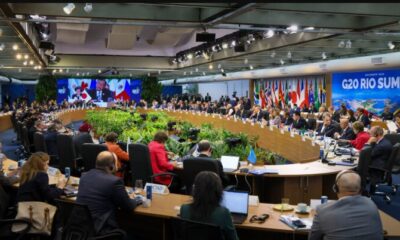World News
Did Trump Commit ‘Bribery’? Pelosi’s Impeachment Accusation, Explained
-

 Entertainment7 days ago
Entertainment7 days agoNaftunes Productions: Shaping the Future of Animation in Kenya
-

 Tech3 days ago
Tech3 days agoThe AI Arms Race: How Cyber-Defenders are Using AI to Fight AI-Generated Threats
-

 Tech3 days ago
Tech3 days agoThe Invisible Hand of AI: How Machine Learning is Building the Resilient, Self-Healing Supply Chains of Tomorrow
-

 General News1 day ago
General News1 day agoLamine Yamal: The Teen Who’s Redefining Spanish Football
-

 Business News9 hours ago
Business News9 hours agoBRICS Expansion: New Members, Currency Dreams, and a Bold Bid to Eclipse the West
-

 Jobs5 hours ago
Jobs5 hours agoUnveiling Mohamed Salah: The Egyptian King’s Secrets That Have the World Googling Non-Stop
-

 General News1 day ago
General News1 day agoMigration & Refugee Crises: Europe and the Americas Grapple with New Humanitarian Pressures
-

 Business News8 hours ago
Business News8 hours agoGlobal South Rising: Africa, Asia, and Latin America Demand a Louder Voice in World Governance


